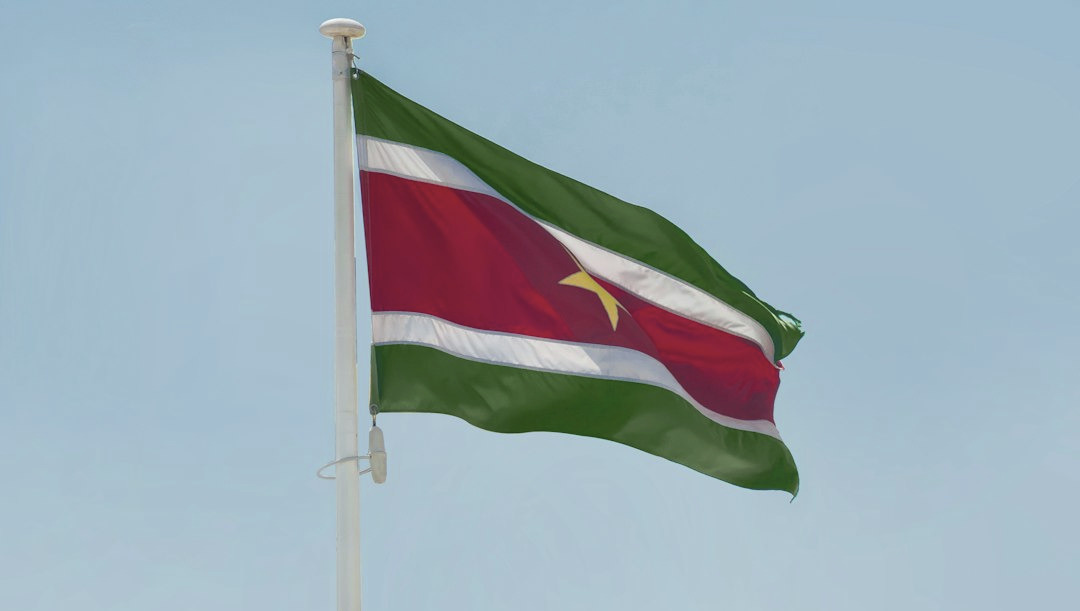South America's Dutch-speaking country
You probably wouldn't expect Dutch as a common language anywhere in South America

Did you know that there’s a whole country that’s not in Europe or a tiny island that speaks Dutch as its official language? Welcome to Suriname! Which, if you’re unfamiliar with it, is located all the way in South America. Which very well might be the LAST place you’d expect anyone to speak Dutch but here we are and here they are. In fact Suriname, along with their neighbors Guyana and French Guiana, are so culturally different from the rest of South America it’s almost like they’re not even South American. And if that idea interests you, well then be sure to check out my video this week:
But now let’s turn our attention back to the linguistically unique Suriname. Why do they speak Dutch? Of all languages it seems like the odd one out because, well, the Dutch language didn’t disperse itself during the period of colonialization in the same way that English, Spanish, French and even Portuguese did. Suriname is a linguistic and cultural outlier in South America. Guyana and French Guiana are as well (speaking English and French respectively) but, again, those languages make a bit more sense as both languages were widely dispersed over the last 300 years. So what happened with Suriname?
Let’s go back in time!
In the early 1600s, the area that is now Suriname was contested ground. The Spanish and Portuguese were the dominant colonial powers in South America, claiming vast portions of the continent under the Treaty of Tordesillas in 1494. But the Dutch, British, and French were not content to stay out of the Americas. They chipped away at Iberian control, often establishing footholds in the less populated northern regions along the Caribbean coast. The Dutch West India Company, in particular, became a major force in the Atlantic, seizing ports, founding trade posts, and establishing colonies, including the area that would become Suriname.
The turning point came in 1667 with the Treaty of Breda, which ended the Second Anglo-Dutch War. In a curious exchange, the Dutch gave up their claim to the English-controlled colony of New Amsterdam (today New York City) in exchange for full control of Suriname, which had been under Dutch administration since they captured it from the British earlier that year. The Dutch viewed Suriname as a valuable sugar-producing colony, while the English prioritized control over North American territory. This treaty locked in Suriname’s colonial alignment with the Netherlands, while much of the rest of South America continued under Spanish or Portuguese influence.
For centuries, Suriname remained a Dutch colony, with a plantation-based economy built on enslaved African labor and, later, indentured workers from India, Indonesia, and China. And this meant that Dutch became entrenched not just as the language of administration, but as the language of education, law, and public life. Even after Suriname gained independence in 1975, Dutch remained the official language, a legacy of colonial infrastructure and identity that was too deeply embedded to displace.
Today, Dutch continues to serve as the language of government and schooling, even though most Surinamese people also speak Sranan Tongo, a local creole, as well as Hindi, Javanese, and other community languages. But in a continent dominated by Iberian languages, Suriname stands out as a small but striking reminder of how colonial history can shape not just borders, but the very words people use to describe the world around them.




Actually, before Suriname even became a Dutch colony, the Dutch occupied a very substantial portion of coastal northern Brazil from 1630 to 1654. This territory extended from what's now Sao Luis de Maranhao to just short of Salvador; the Dutch tried and failed multiple times to take over the latter. Ultimately, the Portuguese expelled the Dutch from that whole area. That episode is transient in Dutch history but important in Brazilian history.
Similarly transient in British history but important in Argentine/Uruguayan history are the British invasions of the River Plate (Buenos Aires in particular) in 1806 and 1807. Had the British rather than the Buenos Aires militias (without official Spanish help, it should be pointed out) been the victors, then Guyana wouldn't be a South American outlier for speaking English. In such a scenario, Argentina (including Uruguay as just another province) would be speaking English alongside Spanish.
And when talking about Suriname, Guyana, and French Guiana as linguistic outliers in South America, it's important to think of those countries as southeasterly mainland extensions of the non-Spanish Caribbean rather than being in the mainstream of South America like Brazil and the Spanish-speaking republics there.
Religion is another piece quite interesting of Surinam (and Guyana). Those two countries have the majority of the Hindu and Muslim population in South America. Combined, Hindu and Muslim are about 40% of the population of Suriname!